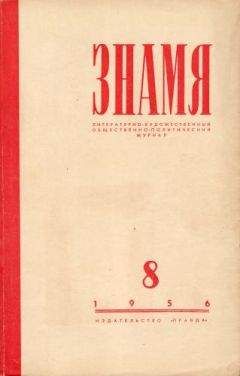Дорис Лессинг - Маленький Темби. A Little Tembi

Помощь проекту
Маленький Темби. A Little Tembi читать книгу онлайн
'I was thinking of our little Freddie, said Jane emotionally. Freddie was their first child. Willie said impatiently: 'And what's the good of thinking of him? 'Oh no good, Willie. No good at all, agreed Jane tearfully. 'It does seem awful, though. Do you remember him, Willie? Do you remember what a sweet little thing he was? Willie could not afford to remember the sweetness of the baby Tembi at that moment; and he was displeased with Jane for reminding him; there was a small constriction of feeling between them for a little while, which soon dissolved, for they were good friends, and were in the same mind about most things.
The calves did not stray again. At the end of the month, when Tembi stepped forward to take his four shillings and sixpence wages, Willie smiled at him and said: 'Well, Tembi, and how are things with you? 'I want more money, said Tembi boldly. 'Wha-a-at! exclaimed Willie, astounded. He called to Tembi's father, who stepped out of the gang of waiting Africans, to hear what Willie wanted to say. 'This little rascal of yours let the cattle stray twice, and then says he wants more money. Willie said this loudly, so that everyone could hear; and there was laughter from the labourers. But Tembi kept his head high, and said defiantly: 'Yes, baas, I want more money. 'You'll get your bottom tanned, said Willie, only half- indignant: and Tembi went off sulkily, holding his silver in his hand, with amused glances following him.
He was now about seven, very thin and lithe, though he still carried his protuberant stomach before him. His legs were flat and spindly, and his arms broader below the elbow than above. He was not crying now, nor stumbling. His small thin shape was straight, and — so it seemed — angry. Willie forgot the incident.
But next month the child again stood his ground and argued stubbornly for an increase. Willie raised him to five and sixpence, saying resignedly that Jane had spoiled him. Tembi bit his lips in triumph, and as he walked off gave little joyous skipping steps, finally breaking into a run as he reached the trees. He was still the youngest of the working children, and was now earning as much as some three or four years older than he: this made them grumble, but it was recognized, because of Jane's attitude, that he was a favourite.
Now, in the normal run of things, it would have been a year, at least, before he got any more money. But the very month following, he claimed the right to another increase. This time the listening natives made sounds of amused protest; the lad was forgetting himself. As for Willie, he was really annoyed. There was something insistent, something demanding, in the child's manner that was almost impertinent. He said sharply: 'If you don't stop this nonsense, I'll tell your father to teach you a lesson where it hurts. Tembi's eyes glowed angrily, and he attempted to argue, but Willie dismissed him curtly, turning to the next labourer.
A few minutes later Jane was fetched to the back door by the cook, and there stood Tembi, shifting in embarrassment from foot to foot, but grinning at her eagerly. 'Why, Tembi… she said vaguely. She had been feeding the children, and her mind was filled with thoughts of bathing and getting them to bed — thoughts very far from Tembi. Indeed, she had to look twice before she recognized him, for she carried always in the back of her mind the picture of that sweet fat black baby who bore, for her, the name Tembi. Only his eyes were the same: large dark glowing eyes, now imploringly fixed on her. 'Tell the boss to give me more money, he beseeched.
Jane laughed kindly. 'But, Tembi, how can I do that? I've nothing to do with the farm. You know that.
'Tell him, missus. Tell him, my missus, he beseeched.
Jane felt the beginnings of annoyance. But she chose to laugh again, and said, 'Wait a minute, Tembi. She went inside and fetched from the children's supper table some slices of cake, which she folded into a piece of paper and thrust into Tembi's hand. She was touched to see the child's face spread into a beaming smile: he had forgotten about the wages, the cake did as well or better. 'Thank you, thank you, he said; and, turning, scuttled off into the trees.
And now Jane was given no chance of forgetting Tembi. He would come up to the house on a Sunday with quaint little mud toys for the children, or with the feather from a brilliant bird he had found in the bush; even a handful of wild flowers tied with wisps of grass. Always Jane welcomed him, talked to him, and rewarded him with small gifts. Then she had another child, and was very busy again. Sometimes she was too occupied to go herself to the back door. She would send her servant with an apple or a few sweets.
Soon after, Tembi appeared at the clinic one morning with his toe bound up. When Jane removed the dirty bit of cloth, she saw a minute cut, the sort of thing no native, whether child or adult, would normally take any notice of at alt. But she bound it properly for him, and even dressed it good-naturedly when he appeared again, several days later. Then, only a week afterwards, there was a small cut on his finger. Jane said impatiently: 'Look here, Tembi, I don't run this clinic for nonsense of this kind. When the child stared up at her blankly, those big dark eyes fixed on her with an intensity that made her uncomfortable, she directed the houseboy to translate the remark into dialect, for she thought Tembi had not understood. He said, stammering: 'Missus, my missus, I come to see you only. But Jane laughed and sent him away. He did not go far. Later, when all the other patients had gone, she saw him standing a little way off, looking hopefully at her. 'What is it? she asked, a little crossly, for she could hear the new baby crying for attention inside the house.
'I want to work for you, said Tembi. 'But, Tembi, I don't need another boy. Besides, you are too small for housework. When you are older, perhaps. 'Let me look after the children. Jane did not smile, for it was quite usual to employ small piccanins as nurses for children not much younger than themselves. She might even have considered it, but she said: 'Tembi, I have just arranged for a nanny to come and help me. Perhaps later on. I'll remember you, and if I need someone to help the nanny I'll send for you. First you must learn to work well. You must work well with the calves and not let them stray; and then we'll know you are a good boy, and you can come to the house and help me with the children.
Tembi departed on this occasion with lingering steps, and some time later Jane, glancing from the window, saw him standing at the edge of the bush gazing towards the house. She despatched the houseboy to send him away, saying that she would not have him loitering round the house doing nothing.
Jane, too, was now feeling that she had 'spoiled' Tembi, that he had 'got above himself'.
And now nothing happened for quite a long time.
Then Jane missed her diamond engagement ring. She used often to take it off when doing household things; so that she was not at first concerned. After several days she searched thoroughly for it, but it could not be found. A little later a pearl brooch was missing. And there were several small losses, a spoon used for the baby's feeding, a pair of scissors, a silver christening mug. Jane said crossly to Willie that there must be a poltergeist. 'I had the thing in my hand and when I turned round it was gone. It's just silly. Things don't vanish like that. 'A black poltergeist, perhaps, said Willie. 'How about the cook? 'Don't be ridiculous, said Jane, a little too quickly. 'Both the houseboys have been with us since we came to the farm. But suspicion flared in her, nevertheless. It was a well- worn maxim that no native, no matter how friendly, could be trusted; scratch any one of them, and you found a thief. Then she looked at Willie, understood that he was feeling the same, and was as ashamed of his feelings as she was. The houseboys were almost personal friends. 'Nonsense, said Jane firmly. 'I don't believe a word of it. But no solution offered itself, and things continued to vanish.
One day Tembi's father asked to speak to the boss. He untied a piece of cloth, laid it on the ground — and there were all the missing articles. 'But not Tembi, surely, protested Jane. Tembi's father, awkward in his embarrassment, explained that he had happened to be passing the cattle kraals, and had happened to notice the little boy sitting on his antheap, in the shade, playing with his treasures. 'Of course he had no idea of their value, appealed Jane. 'It was just because they were so shiny and glittering. And indeed, as they stood there, looking down at the lamplight glinting on the silver and the diamonds, it was easy to see how a child could be fascinated. 'Well, and what are we going to do? asked Willie practically. Jane did not reply directly to the question; she exclaimed helplessly: 'Do you realize that the little imp must have been watching me doing things round the house for weeks, nipping in when my back was turned for a moment — he must be quick as a snake. 'Yes, but what are we going to do? 'Just give him a good talking-to, said Jane, who did not know why she felt so dismayed and lost. She was angry; but far more distressed — there was something ugly and persistent in this planned, deliberate thieving, that she could not bear to associate with little Tembi, whom she had saved from death.
'A talking-to won't do any good, said Willie. Tembi was whipped again; this time properly, with no nonsense about making the switch whistle for effect. He was made to expose his bare bottom across his father's knees, and when he got up, Willie said with satisfaction: 'He's not going to be comfortable sitting down for a week. 'But, Willie, there's blood, said Jane. For as Tembi walked off stiffly, his legs straddled apart from the pain, his fists thrust into his streaming eyes, reddish patches appeared on the stuff of his trousers. Willie said angrily: 'Well, what do you expect me to do — make him a present of it and say: How clever of you?
'But blood, Willie!
'I didn't know I was hitting so hard, admitted Willie. He examined the long flexible twig in his hands, before throwing it away, as if surprised at its effectiveness. 'That must have hurt, he said doubtfully. 'Still, he deserved it. Now stop crying, Jane. He won't do that again.
But Jane did not stop crying. She could not bear to think of the beating; and Willie, no matter what he said, was uncomfortable when he remembered it. They would have been pleased to let Tembi slip from their minds for a while, and have him reappear later, when there had been time for kindness to grow in them again.
But it was not a week before he demanded to be made nurse to the children: he was now big enough, he said; and Jane had promised. Jane was so astonished she could not speak to him. She went indoors, shutting the door on him; and when she knew he was still lingering there for speech with her, sent out the houseboy to say she was not having a thief as nurse for her children.
A few weeks later he asked again; and again she refused.
Then he took to waylaying her every day, sometimes several times a day: 'Missus, my missus, let me work near you, let me work near you. Always she refused, and always she grew more angry.
At last, the sheer persistence of the thing defeated her. She said: 'I won't have you as a nurse, but you can help me with the vegetable garden. Tembi was sullen, but he presented himself at the garden next day, which was not the one near the house, but the fenced patch near the compound, for the use of the natives. Jane employed a garden boy to run it, telling him when was the time to plant, explaining about compost and the proper treatment of soil. Tembi was to help him.
She did not often go to the garden; it ran of itself. Sometimes, passing, she saw the beds full of vegetables were running to waste; this meant that a new batch of Africans were in the compound, natives who had to be educated afresh to eat what was good for them. But now she had had her last baby, and employed two nannies in the nurseries, she felt free to spend more time at the clinic and at the garden. Here she made a point of being friendly to Tembi. She was not a person to bear grudges, though a feeling that he was not to be trusted barred him as a nurse. She would talk to him about her own children, and how they were growing, and would soon be going to school in the city. She would talk to him about keeping himself clean, and eating the right things; how he must earn good money so that he could buy shoes to keep his feet from the germ-laden dust; how he must be honest, always tell the truth and be obedient to the white people. While she was in the garden he would follow her around, his hoe trailing forgotten in his hand, his eyes fixed on her. 'Yes, missus; yes, my missus, he repeated continually. And when she left, he would implore: When are you coming again? Come again soon, my missus. She took to bringing him her own children's books, when they were too worn for use in the nursery. 'You must learn to read, Tembi, she would say. 'Then, when you want to get a job, you will earn more wages if you can say: "Yes, missus, I can read and write." You can take messages on the telephone then, and write down orders so that you don't forget them. 'Yes, missus, Tembi would say, reverently taking the books from her. When she left the garden, she would glance back, always a little uncomfortably, because of Tembi's intense devotion, and see him kneeling on the rich red soil, framed by the bright green of the vegetables, knitting his brows over the strange coloured pictures and the unfamiliar print.
This went on for about two years. She said to Willie: 'Tembi seems to have got over that funny business of his. He's really useful in that garden. I don't have to tell him when to plant things. He knows as well as I do. And he goes round the huts in the compound with the vegetables, persuading the natives to eat them. 'I bet he makes a bit on the side, said Willie, chuckling. 'Oh no, Willie, I'm sure he wouldn't do that.
And, in fact, he didn't. Tembi regarded himself as an apostle of the white man's way of life. He would say earnestly, displaying the baskets of carefully arranged vegetables to the native women: 'The Goodhearted One says it is right we should eat these things. She says eating them will save us from sickness. Tembi achieved more than Jane had done in years of propaganda.
He was nearly eleven when he began giving trouble again. Jane sent her two elder children to boarding-school, dismissed her nannies, and decided to engage a piccanin to help with the children's washing. She did not think of Tembi; but she engaged Tembi's younger brother.
Tembi presented himself at the back door, as of old, his eyes flashing, his body held fine and taut, to protest. 'Missus, missus, you promised I should work for you. 'But Tembi, you are working for me, with the Vegetables. 'Missus, my missus, you said when you took a piccanin for the house, that piccanin would be me. But Jane did not give way. She still felt as if Tembi were on probation. And the demanding, insistent, impatient thing in Tembi did not seem to her a good quality to be near her children. Besides, she liked Tembi's little brother, who was a softer, smiling, chubby Tembi, playing good- naturedly with the children in the garden when he had finished the washing and ironing. She saw no reason to change, and said so.
Tembi sulked. He no longer took baskets of green stuff from door to door in the compound. And he did as little work as he need without actually neglecting it. The spirit had gone out of him.
























